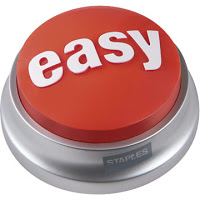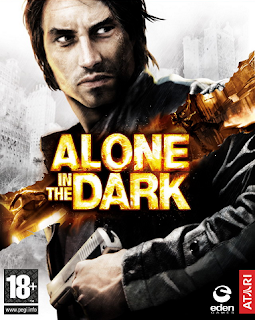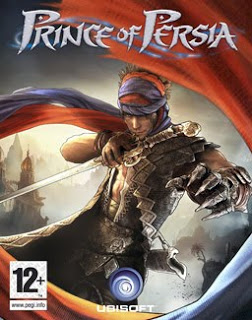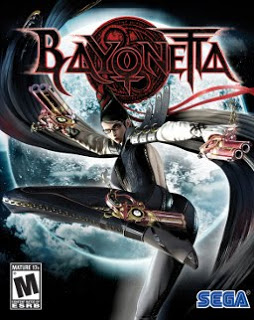In Praise of Easy: Lowering the Barrier to Entry

The challenge/punishment confusion is a major source of disagreement about video game difficulty, but it’s not the only one. Even when we have set punishment aside and are very clearly discussing only challenge, we run into trouble. Let’s take a look at the question of how much “easy” there should be in games:
“…no one wants to press a button marked ‘Win’ to complete a game…"
—NGai Croal, The Harder They Come
“Your easiest setting should basically be ‘push button, win game’."
—Brett Douville, Ten Tips For Managing Difficulty In Games
What’s going on here?
The claim that nobody wants a Win button is demonstrably false. Douville is hardly the only person to advocate them - Shamus Young even wrote a column titled Give Me A Win Button. But Croal’s not really saying nobody wants a Win button. What he’s really saying is that he doesn’t want a Win button.
It’s human nature - unless given blatant evidence to the contrary, we tend to assume other people are like us. (See: false consensus effect, availability heuristic.) Croal sees no appeal in the idea of a Win button, so it’s natural for him to assume nobody else does either.
Gamers - particularly those most marketed toward - tend to forget that there are other gamers who are unlike them. Experienced gamers forget what it’s like to be new to gaming and not have the controller memorized or intuitively recognize the common tropes of games (things like “you can’t be hurt while flashing” and “collect 100 to get an extra life"). Able-bodied gamers forget there are gamers with a wide variety of disabilities, injuries, or ailments. Young adult gamers forget there are older gamers with slower reflexes and poorer vision as well as younger ones with smaller hands and less-developed reading and math skills.
The experienced, able-bodied, young adult gamer has little use for Easy mode. “Why would I play on Easy?” such a gamer might think. “Only if I were feeling lazy or wussing out on the challenge.” And because this gamer is likely to forget the myriad of reasons other gamers might need a lower level of challenge or an extra helping hand, this reasoning is applied to them as well: gamers who want easy must be wusses.
This lack of empathy is not malicious. It’s a simple failure of the imagination, brought on by our human biases. Without an example to go on, we envision hypothetical others as like ourselves, save for the most salient change. We imagine what we would be like if we played on Easy. It’s beneath our abilities, so clearly we would be a wuss to do it. Therefore the gamers who do play on Easy are wusses.
Take this fairly representative response to the news that 2008’s Alone in the Dark allows you to skip chapters:
“If you’ve been keeping up with Alone in the Dark news, this might not be anything particularly important to you. But for those who just want to know a little bit more, you may get a laugh out of this one. Apparently, if you get stuck over the course of the game, a DVD-like menu will allow you to actually skip that section of the game and move on. Yes, you can just skip through the game if you’d like.
Call us crazy, but we’ve always derived a sense of joy from getting through a game. Figuring out a puzzle, conquering a particularly tricky boss, or just making it to the next cut-scene have always been motives for our continued love of gaming. Letting players skip through a game is fairly useless – it defeats the idea of releasing a ‘game’. Unless Alone in the Dark is nigh-impossible, we think this is a pretty strange idea."
—Nick Doerr, Alone in the Dark – skip chapters if you don’t want to play

Adding a chapter-skip ability is an admission that no matter how much Eden Games tunes the gameplay and difficulty, there will always be the possibility that some gamers will just hit a wall - coupled with a strong statement that those gamers should not be left behind.
Here’s another reason someone might want to skip part of a game: data loss.
“. . . My PlayStation 3 went belly up and would no longer boot. The short of it was that the data was unrecoverable. . . . I was half way through Mirror’s Edge and almost finished with Fear 2. . . .
Neither game would in anyway allow me to restart where I had left off or anywhere else in the middle of the stories despite my best efforts. I tried finding save games online only to find that the games would simply reject them. I tried finding cheat codes and came up with nothing. I was left with two options, abandon the games, or restart them. I choose to abandon both games."
—Shane McDaniel, on Better Video Game Playability
Whether a gamer puts a game down because they can’t proceed or because they don’t want to spend their time rehashing hours of already-played material just to catch up, the end result is the same. The gamer is considerably less happy with their experience, less likely to recommend the game to others, and less likely to buy similar games in the future. The gamer and the developer win together or lose together.
Developers tend to fit into the experienced able-bodied young adult gamer category. Failing to empathize with the gamers outside that category is much more expensive for them, because those other gamers are a huge portion of the potential market. Consequently the developers have to work very hard to overcome the failure of imagination to which bias would otherwise lead them.
There’s a long-standing attitude in video game design that the gamers must earn their fun. Buying a game is no guarantee that the player will be able to access all its content. A shocking number of games actually bar the player from later levels or the game’s proper ending if the gamer has the gall to play on Easy. This is becoming less common, but it has not vanished - even the Harmonix-produced Guitar Hero and Rock Band games have songs that cannot be unlocked on Easy without a cheat code. And games that allow all the content to be accessed on Easy may still mock the player for selecting lower difficulty levels. (For a lengthy but noncomprehensive list of games that use these methods, see the Easy Mode Mockery page on TV Tropes.)
What sort of player did these developers imagine would be playing on Easy? Did they really picture someone who would reach the incomplete or insulting ending, or just get mocked, and say something like, “Haha, you guys! You got me. I’ve just been messing around. With this game. That I bought. To entertain myself in my free time. You’re so right! It’s time to knuckle down and get serious!” and cheerily start over on a higher difficulty?
This player - this hypothetical player, born of human bias as a version of the developers themselves, lightly tweaked to be someone who would play on Easy - does not exist.
Who’s playing these games on Easy? Kids. People who are new to games or at least to these games' genres. People with various physical handicaps, injuries, or ailments. People with poor vision or slow reflexes. People who are legitimately trying to enjoy the game, legitimately trying to share the experience on offer.
And what does the game do in response? How does it reward these players' friendly, economically supportive overtures? It hands them a subpar, incomplete experience and makes fun of them for asking for it. It takes the customers most in need of being won over and treats them the worst.
Clearly this is not a good strategy for word-of-mouth marketing and repeat business. But it goes far beyond the developers' financial goals. We all need there to be more gamers. Game developers, game journalists, and gamers themselves. We all benefit from every new person who picks up a controller and presses Start.
This is an important point, so I’m going to say it again: More gamers is better.
Developers benefit by having more people they can sell to. And when the developers benefit, the gamers do as well - a rich developer is one that has the resources to do game development right, and is in a position to take on risky projects like Katamari Damacy or Portal or Guitar Hero or Rock Band. The wild success of these games may seem inevitable in retrospect, but each one was an uncertain experiment into uncharted territory. Their respective developers wouldn’t have dared without a financial safety net. Just as we should not begrudge the success of the lowbrow summer blockbuster movie that funds the niche arthouse film, we should embrace the sales of shovelware and movie tie-ins that fund the development of more polished properties.


Journalists benefit because there are more people who might care what they have to say. The more people are interested in gaming, and the more walks of life they come from, the higher the number of journalists that the ecosystem can support. As the market grows, niches start to form, and audiences emerge for specialized voices such as Gamers with Jobs and Girl Gamer. The gamers, again, benefit as well, as communities sprout around these anchors allowing the gamers to help each other out with advice and information - seen nowhere more clearly than GameFAQs. The more gamers are out there, the more reviews and walkthroughs will be written for the games about which any given gamer is curious.
Gamers benefit most of all, and not just from the increased range of games and game commentary provided by the developers and journalists. The more gamers there are, the less marginalized are all gamers. To paraphrase the Game Overthinker in his video essay Violence is Golden: the more people call themselves gamers, the less gamers are seen as a frightening Other. The soccer mom who, thanks to the recent efforts of the Wii, knows video games as a source of family fun and exercise, is less likely to buy into whatever anti-video game bile is being loudly spewed by Jack Thompson or his successors. She is less likely to call her congressperson and demand support for strict video game censorship.
One more time: More gamers is better! Anything that makes video games more accessible is good news, and cause for celebration.
With that in mind, let’s take a look at another recent experiment in accessibility.

Bayonetta features five difficulty levels, with Normal in the middle, and Easy and Very Easy below it. On the two Easy levels, the player can use something called “Automatic” mode, which ups the player assistance to the point where the game can be played one-handed with a single button, though the player can jump in and control the action more directly any time they wish.
Here’s what Bayonetta’s director Hideki Kamiya has to say about it:
“So even if you are a hardcore user or an absolute beginner, I hope you are all looking forward to getting your hands on a controller and seeing what it feels like to dive into the tempest of violence that is Automatic Bayonetta."
—Hideki Kamiya, VERY EASY AUTOMATIC
And here’s Wired’s commentary:
“How much of a bummer would it be to make a game, especially one that like Bayonetta is full of nutty visuals and crazy fights, and only have your hard work experienced by a tiny part of the gaming audience?
But most importantly, there’s the idea of accessibility. Gamers with handicaps are frequently overlooked. Some must build and mod their own controllers to experience games — and still many popular games are way too unforgiving for them play. Thanks to ‘Very Easy Automatic’ many more will be able to experience Bayonetta. That’s something."
—Gus Mastrapa, Bayonetta’s ‘Very Easy’ Mode Means Disabled Can Play
Many gamers react to Automatic mode with confusion, not seeing the point of a style of gameplay that they have no interest in. But Automatic mode, like Easy modes in general, isn’t for them. To see the point of it, they must step outside of their own perspectives. They must remember the gamers with only one hand, the gamers who have never before touched an action game, the gamers who cannot possibly react quickly or precisely enough to beat Bayonetta unassisted. Automatic mode is for these gamers: it opens the door and welcomes them in, instead of scaring them off or shutting them out.

So. How much “easy” should there be in games? As much as humanly possible. It doesn’t matter if we ourselves would never, ever touch that Win button. We should still want it to be there.



